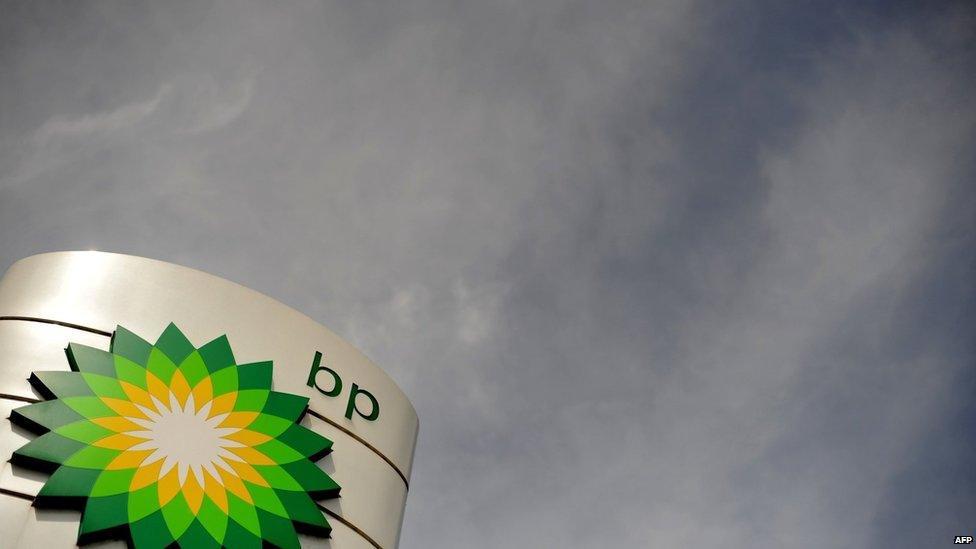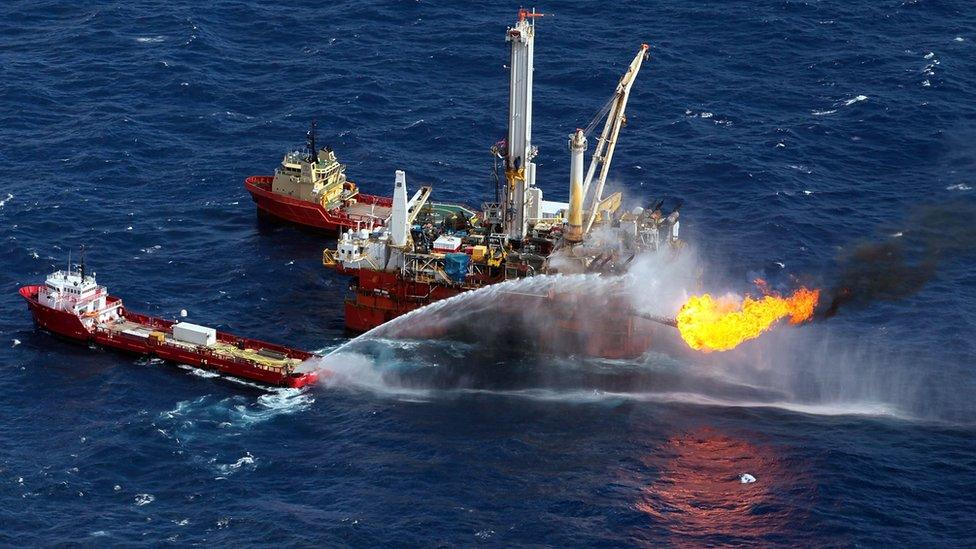BP profits hit by lower oil and gas prices
- Published

Oil giant BP has reported a fall in profits due to lower oil and gas prices.
Replacement cost profit between July and September was $1.23bn (£802m), compared with $2.38bn a year earlier. Total revenue was $55.9bn against $94.8bn a year ago.
The oil price dipped below $50 a barrel in the quarter, while it was above $100 for much of the same period last year.
Prices have dropped due to oversupply and weaker demand.
On an underlying basis, profit for the third quarter was $1.8bn, down from $3bn a year earlier but higher than analysts' estimates of $1.2bn. BP shares opened almost 2% higher, but by mid-afternoon were down 1% on the day.
Replacement cost profit is a standard measure used in the oil industry that takes into account the price of oil.
Reflecting the tougher environment across the industry, the company's capital expenditure for the period fell to $4.3bn, down from $5.3bn. BP continued to rein in spending estimates for 2015, which it now expects to be about $19bn compared with the $24bn-$26bn forecast a year ago.
The company also announced that the total cost of the Deepwater Horizon oil spill in the Gulf of Mexico in 2010 would reach $55bn, higher than previous estimates.
Earlier this month, the company said it had agreed to pay $20bn to settle claims in the US.
To meet these costs, it is selling off assets, and expects to divest $10bn this year, with another $3bn-$5bn in 2016.
BP also said it was maintaining its dividend at 10 cents a share.

Analysis: Kamal Ahmed, BBC business editor
Low oil prices are not all bad news for integrated oil companies.
Yes, life upstream (the exploration and production part of the business) might be tougher because the business is not being paid as much for every barrel of oil it produces.
But, for the downstream business (that's refined oil products such as fuel, lubricants and petrochemicals for making things like paint and plastic bottles) a low oil price can be a veritable boon.
That's because the input costs - essentially the low oil price - are down and therefore the profit margin can be boosted.

Despite the company's immediate troubles, analysts said there was some reason for optimism.
"Refining margins are better than expected, the company remains a cash generating machine and costs are being attacked aggressively to suit the difficult backdrop," said Richard Hunter at Hargreaves Lansdown stockbrokers.
"BP's longer term outlook remains positive."
'Hard time'
Oil prices have fallen sharply due to increased supply from US shale producers and lower demand, in part due to the slowdown in the Chinese economy.

The costs of the Deepwater Horizon oil spill continue to rise
The major oil producers of the Organization of the Petroleum Exporting Countries, known as Opec, would normally cut production to support prices, but they have decided to keep pumping to try and flush out US shale producers which, they hope, will be unable to withstand a sustained period of low prices.
"BP has successfully adapted to changing circumstances many times in its history and, in a hard time for the entire industry, I believe we will once again successfully take on today's challenges," said BP chief executive Bob Dudley.
"We are already in action, with a quality portfolio and clear plans for the future. I am confident BP will continue to deliver value into the years and decades ahead."
BP is the first European or US oil major to report its third quarter earnings.